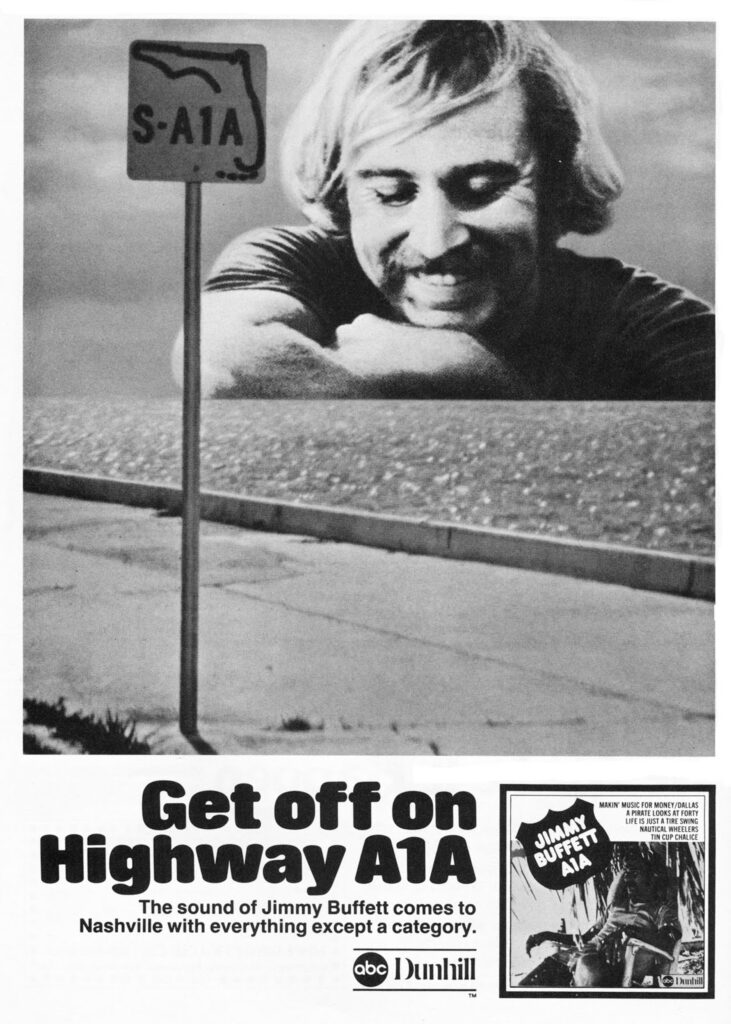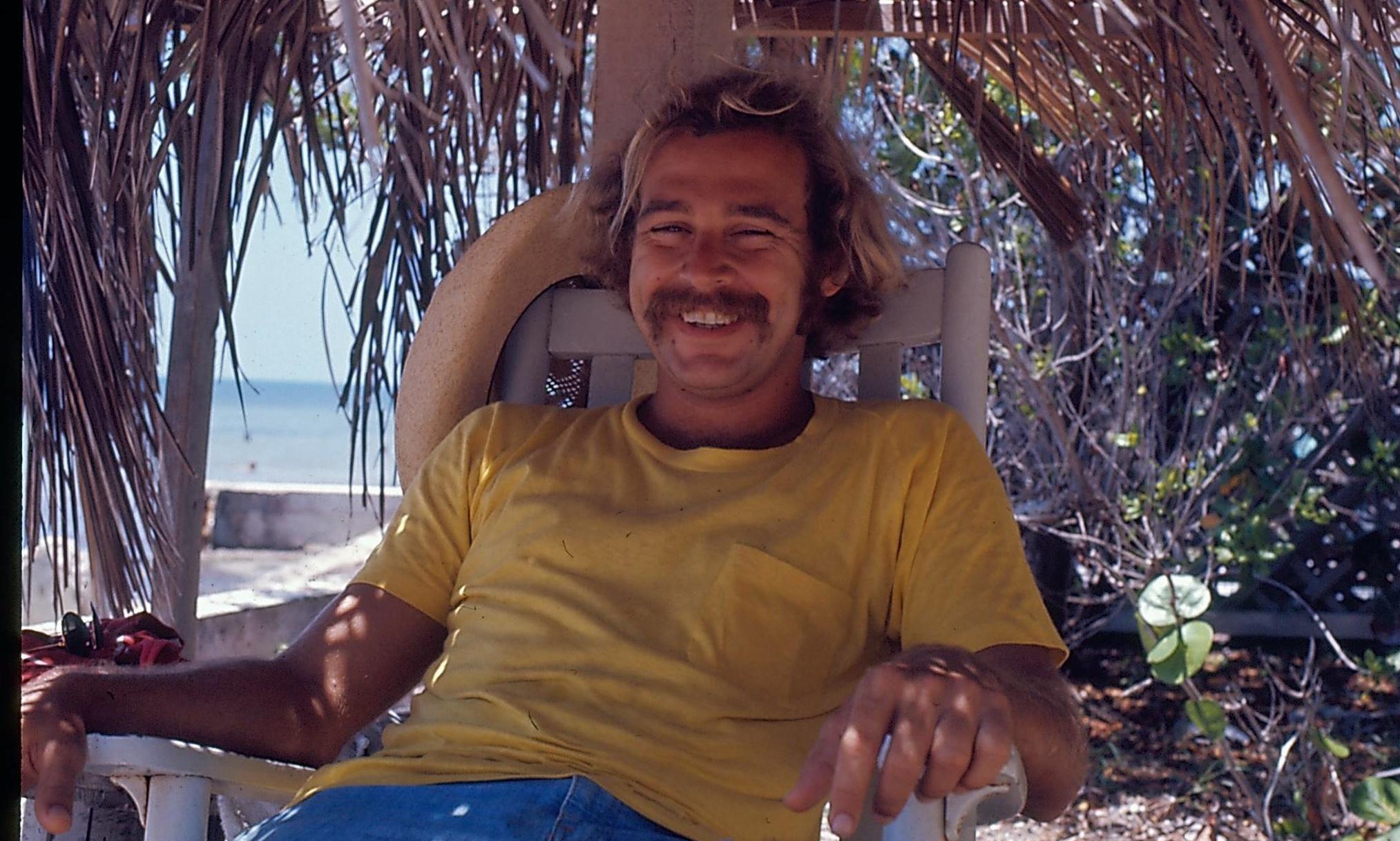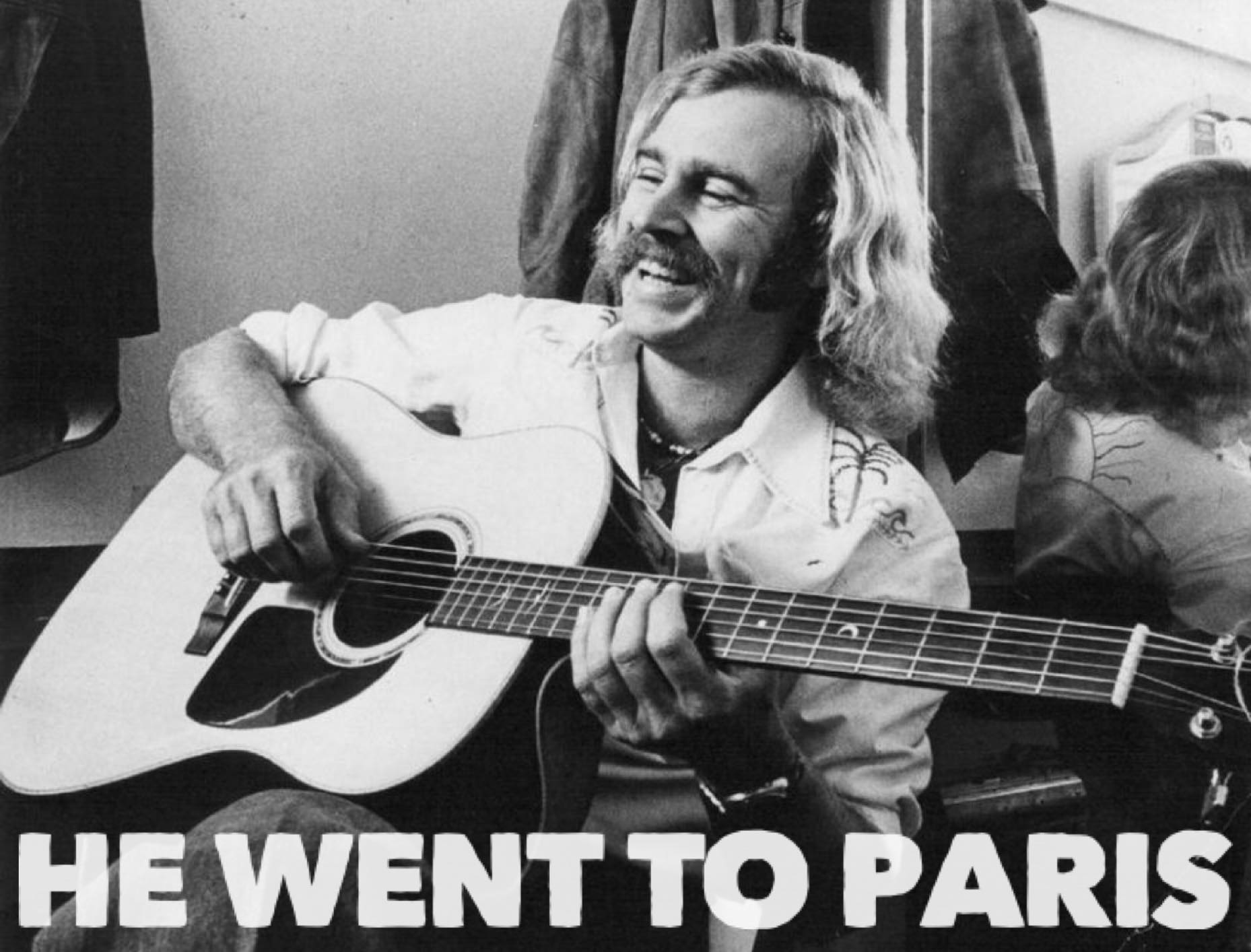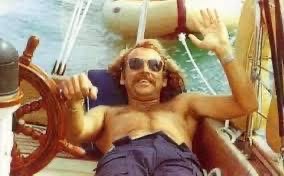In the golden shimmer of the mid-1970s, when the lines between outlaw country and coastal daydreams were being gently blurred, Jimmy Buffett released an album that would come to define not just a genre, but a lifestyle. A1A, named after the scenic Florida highway that hugs the Atlantic coast like a lazy arm draped over a hammock, arrived in 1974 as more than a collection of songs, it was a slow-swaying manifesto for the restless soul.
The Road to A1A
By the time A1A landed, Buffett was no stranger to the stage or the studio. He’d already begun stitching his musical tapestry from the threads of folk, country, and the salty rhythms of the Gulf. But A1A marked a turning tide, a crystallization of the “Gulf and Western” sound that would earn him legions of sunburned, smiling fans known lovingly as Parrotheads.
The album isn’t just a soundtrack for beachside bars or late-night drives under starlit skies; it’s a document of a man caught between the American South and the siren call of the sea. It’s as much a road map as it is a diary, of love and loss, freedom and folly, salt air and cigarettes.
Tracks of Driftwood and Dreaming
The album opens with “Makin’ Music for Money,” a song penned by Alex Harvey that captures Buffett’s wry, self-aware humor. With a touch of defiance, he sings not for fame or fortune, but for survival, and maybe a little beer money. It sets the tone: this is an artist in on the joke, comfortable in the space between sincerity and satire.
“Door Number Three,” co-written with Steve Goodman, leans into this cleverness even further. A game show parody wrapped in honky-tonk twang, it’s a sharp and playful nod to America’s obsession with luck, chance, and the tantalizing unknown behind every proverbial curtain.
But it’s the deeper cuts that anchor the album’s soul.
“A Pirate Looks at Forty” is the pearl in Buffett’s shell. A weary, wistful reflection from a modern-day pirate who was “born too late,” it is perhaps Buffett’s most haunting and poetic work. Here, he trades the margaritas and mischief for musings on purpose and passing time. The ocean is no longer just a place of pleasure, but a metaphor for eternity, a vast and blue reminder of all that was and never will be. “Mother, mother ocean,” he begins, four words that sound like a hymn for the aimless. In this song, Buffett becomes more than a beach bard, he becomes a balladeer of the lost.
“Trying to Reason with Hurricane Season” is another jewel, one that captures the melancholy of tropical life. There’s beauty in the breeze, but also danger in the swells. Buffett walks this line like a man who’s watched many a storm roll in, both literal and emotional. The song is a quiet meditation on chaos, best heard with a drink in hand and your eyes on the horizon.
And then there’s “Nautical Wheelers,” a light-footed waltz that conjures up images of barefoot dancers under moonlight, and “Migration,” which ends the album with a sigh and a smile. “I’ve got a Caribbean soul I can barely control,” Buffett sings, and by then, we believe him entirely.
The Buffett Vibe: Salt, Sun, and Soul
More than anything, A1A feels lived-in. It’s sun-bleached and rum-stained, full of characters you might meet at a dockside bar, fishermen with pasts, poets with guitars, exiles from convention. Buffett doesn’t just sing about escapism; he invites you into its gentle, messy embrace.
There’s an undeniable charm in his contradictions: half philosopher, half prankster; one foot in Key West, the other in Nashville. The music sways like a hammock in a breeze, never in a hurry, never trying too hard, but always saying something true.
A1A is more than a landmark in Jimmy Buffett’s discography, it’s the mile marker where his mythology truly begins. It is the crossroad of carefree and contemplative, a place where laughter and longing walk hand in hand along a shoreline that stretches beyond the visible.
So roll down your windows. Let the sea air in. Let Jimmy sing you southward. Because somewhere down A1A, the world gets a little simpler, and the heart feels a little freer.
Pick up a copy for yourself: https://amzn.to/4kL23VE
A little about Jimmy:
Jimmy Buffett was more than a singer-songwriter, he was a cartographer of the American dream’s escape route. Born on December 25, 1946, in Pascagoula, Mississippi, and raised along the Gulf Coast, Buffett carried the easy Southern drawl of a man who knew the tide by heart. Though his early musical days were steeped in Nashville’s folk and country traditions, it wasn’t long before he cast off from the mainstream, sailing toward a sound all his own, a sun-drenched fusion of island rhythms, laid-back philosophy, and stories soaked in saltwater.
Buffett’s songs, like “Margaritaville”, “Come Monday”, and “A Pirate Looks at Forty”, weren’t just hits, they were invitations. Invitations to slow down, laugh at your own chaos, and find poetry in the flip-flop life. With a guitar in hand and a twinkle in his eye, he built an empire on the notion that you didn’t need much more than a good breeze, a cold drink, and a place to be free. Over the decades, he became a symbol of coastal Americana, an entrepreneur, author, and philanthropist, but above all, he remained the troubadour of the tropics, singing for those of us always chasing the horizon.




